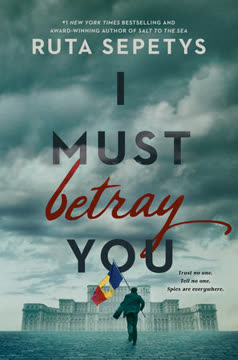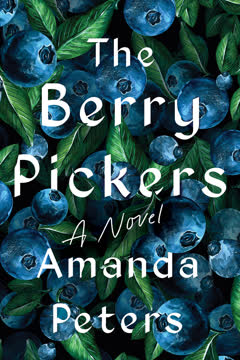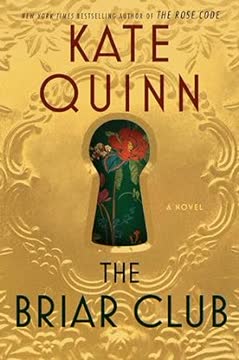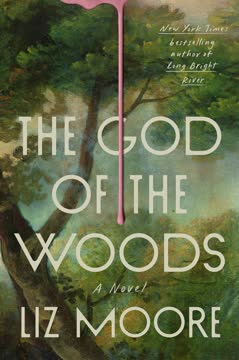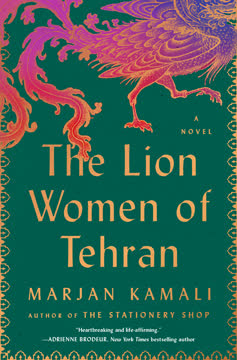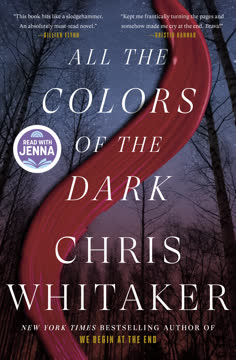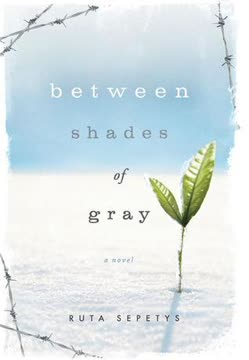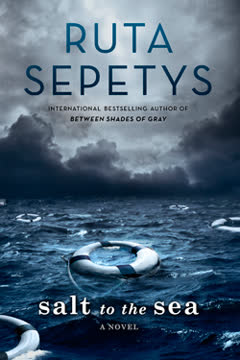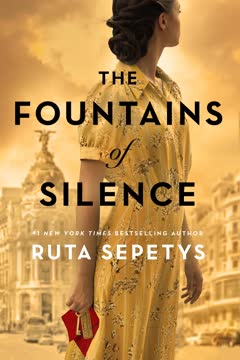Plot Summary
Shadows and Surveillance
In 1989 Bucharest, Cristian Florescu, a seventeen-year-old student, lives under the constant gaze of Romania's secret police, the Securitate. Surveillance is everywhere—neighbors, teachers, even family members could be informers. Cristian's world is one of whispered conversations, rationed food, and the omnipresent portraits of dictator Nicolae Ceauşescu. The regime's paranoia has seeped into every aspect of daily life, creating a society where trust is a luxury and silence is survival. Cristian's family, like millions of others, struggles to maintain dignity and hope amid deprivation and suspicion. The darkness is not just physical, but psychological—a shadow that shapes every relationship and decision, and the threat of betrayal is as real as the hunger in their bellies.
The Black Dacia's Bargain
Cristian's life changes when he is summoned by a Securitate agent—nicknamed "Paddle Hands"—who blackmails him into becoming an informer. The pretext is a minor infraction: a stamp trade with an American diplomat's son, Dan Van Dorn, and the accidental possession of a U.S. dollar. The agent threatens Cristian's family, especially his beloved grandfather Bunu, who is gravely ill. In exchange for medicine for Bunu, Cristian must spy on the Van Dorn family and report their activities. The bargain is clear: betray others or watch his family suffer. Cristian is given the code name "OSCAR" and thrust into a world of duplicity, forced to navigate the moral labyrinth of survival under tyranny, where every choice is a potential act of treason.
Guilt's Heavy Footsteps
Cristian's new role as an informer gnaws at his conscience. He tries to rationalize his actions—he's only spying on foreigners, not fellow Romanians—but guilt and paranoia intensify. He invents excuses for his family, hiding the truth behind stories of exam stress. The ever-present fear of being watched or followed becomes a physical sensation, tightening around him like a noose. Cristian's relationships begin to fray; he suspects his best friend Luca of betrayal and distances himself from those he loves. The regime's strategy of sowing mistrust is devastatingly effective, isolating individuals and eroding the bonds that might otherwise foster resistance or solidarity.
Liliana and the Coke
Amid the bleakness, Cristian finds solace in Liliana Pavel, a quiet, perceptive classmate. Their tentative friendship blossoms during secret walks home and forbidden gatherings like "video nights," where Western movies offer a glimpse of freedom. Liliana shares a precious can of Coca-Cola—her Christmas present—with Cristian, a small act of rebellion and intimacy. Their bond is a rare source of warmth and hope, but even this is shadowed by suspicion. Cristian wonders if Liliana, too, could be an informer. In a world where every gesture is potentially dangerous, love and trust are acts of courage, and every moment of connection is tinged with the risk of betrayal.
Jokes, Lines, and Lies
In Cristian's family, humor—especially illegal jokes about the regime—serves as a coping mechanism and a subtle form of defiance. His grandfather Bunu, a philosopher at heart, encourages Cristian to think critically and keep a secret notebook of observations and questions. The family's daily life is a series of small negotiations: bribing officials with Western cigarettes, standing in endless lines for food, and whispering to avoid the ever-listening "Philips" bugs. The regime's control extends even to women's bodies, with forced fertility checks and state-mandated heroism. Cristian's internal world becomes a battleground between the need to survive and the desire to remain true to himself and those he loves.
The Price of Trust
Cristian's relationship with his best friend Luca deteriorates as suspicion festers. Convinced that Luca informed on him, Cristian's anger boils over, leading to a physical confrontation. The regime's strategy of turning citizens against each other is painfully effective, destroying friendships and sowing seeds of doubt. Meanwhile, Cristian's efforts to fulfill his informer duties become increasingly fraught; he is tasked with mapping the Van Dorns' apartment and reporting on their activities. The realization that trust is nearly impossible under such conditions is devastating, and Cristian is forced to confront the possibility that even his closest relationships may be built on lies.
Video Nights and Western Dreams
Secret "video nights" become a lifeline for Cristian and his peers, offering a window into a world of choice, abundance, and ease. Western movies, dubbed by a mysterious Romanian woman, reveal lives unimaginable in Romania—refrigerators full of food, working streetlights, and the freedom to speak one's mind. These glimpses fuel both longing and resentment, highlighting the stark contrast between propaganda and reality. Cristian's interactions with Dan Van Dorn deepen his understanding of the West and the extent of the regime's deceptions. The allure of freedom becomes both a source of hope and a painful reminder of what has been stolen from them.
The American Assignment
Under pressure from the Securitate, Cristian intensifies his surveillance of the Van Dorn family. He observes their home, notes their possessions, and tries to glean information from Dan. The assignment is both a lifeline and a curse—Cristian hopes to secure medicine for Bunu, but each report he files feels like a betrayal of his own values. The Van Dorns, aware of the surveillance, play their own subtle games, communicating in code and offering Cristian small kindnesses. The lines between victim and collaborator blur, and Cristian is forced to navigate the treacherous terrain of divided loyalties and shifting truths.
Family Secrets, Family Fears
As the regime's grip tightens, Cristian discovers that betrayal is not limited to strangers or acquaintances—it exists within his own family. His sister Cici, under duress and promises of a better life, becomes entangled with the Securitate, and his mother, too, is revealed to be an informer. The realization that even those closest to him are complicit in the machinery of oppression is shattering. Bunu, the family's moral anchor, is targeted and ultimately killed by the regime, his death a brutal warning to all who dare to think or speak freely. Cristian's sense of self and belonging is fractured, and the cost of survival becomes unbearably high.
Betrayal in the Blood
As protests erupt across Eastern Europe, Romania remains a holdout, its people cowed by decades of terror. But the spark of resistance is ignited in Timișoara, and soon spreads to Bucharest. Cristian, Luca, and Liliana are swept up in the uprising, risking everything to demand liberty. The regime responds with violence—protesters are beaten, shot, and imprisoned. Cristian is arrested, tortured, and forced to witness the suffering of children and friends. The revolution is both a collective and intensely personal struggle, marked by loss, sacrifice, and the hope that freedom might finally be within reach.
Screaming Whispers
Amid the chaos, Cristian compiles his secret notebook—"Screaming Whispers"—a testament to the suffering and resilience of the Romanian people. He risks everything to smuggle it to the American diplomat, hoping it will reach the outside world and bear witness to the truth. The act is both an act of defiance and a plea for help, a way to reclaim agency in a world designed to silence dissent. The notebook becomes a symbol of the power of words and the importance of memory, even as the cost of speaking out is paid in blood and loss.
The Revolution Ignites
The revolution reaches its climax as the people of Bucharest rise up, chanting for freedom and confronting the regime's forces. The army, at last, sides with the people, and Ceauşescu flees the capital. The city is a battleground—violence, confusion, and hope intermingle as the old order collapses. Cristian, battered and broken, searches for his friends and loved ones amid the chaos. The sense of collective purpose is overwhelming, but so is the grief for those lost and the uncertainty of what comes next. The revolution is both a triumph and a tragedy, a moment of liberation shadowed by the scars of betrayal.
Blood in the Square
The cost of freedom is measured in lives and wounds. Luca is gravely injured, Liliana is brutalized, and many others are killed or disappeared. Cristian's own survival is precarious, and the trauma of what he has witnessed and endured will linger long after the fighting ends. The revolution's victory is real, but incomplete—justice is elusive, and the wounds of betrayal run deep. The bonds of friendship and love, tested by fire, offer a fragile hope for healing and renewal in the aftermath of violence.
Jilava's Children
Cristian and Liliana, along with other young protesters, are imprisoned in Jilava, a notorious political prison. They endure beatings, humiliation, and deprivation, but refuse to be broken. Acts of solidarity—sharing names, comforting children, resisting the guards—become acts of resistance. The experience cements their bond and deepens their understanding of the regime's cruelty. Even in the darkest moments, the desire for freedom and dignity persists, and the knowledge that the world may finally be watching offers a glimmer of hope.
The Fall of the Tyrant
The dictator and his wife are captured, tried, and executed on Christmas Day. The news is both shocking and anticlimactic—the end comes swiftly, but the damage lingers. The regime's excesses are exposed, and the people begin to reckon with the scale of their suffering and complicity. Cristian's secret notebook is broadcast on Radio Free Europe, giving voice to the silenced and honoring the memory of those lost. The revolution is won, but the process of healing and understanding is only beginning.
Aftermath and Unanswered Questions
In the years that follow, Cristian and Liliana build new lives, but the past is never far away. The opening of the Securitate archives reveals the full extent of surveillance and betrayal—over fifty people informed on Cristian's family, including his mother and sister. The lines between victim and collaborator are blurred, and the wounds of mistrust are slow to heal. The story ends with a recognition that history is complicated, justice is elusive, and the process of remembering is itself an act of resistance. The hope for a better future endures, carried by those who refuse to forget.
Characters
Cristian Florescu
Cristian is a seventeen-year-old student whose keen intelligence and sensitivity make him both a target and a resister. Forced into informing by the Securitate, he is torn between protecting his family and preserving his integrity. His secret notebook becomes a lifeline, a place to process the trauma and contradictions of life under dictatorship. Cristian's relationships—with his family, friends, and Liliana—are shaped by suspicion, guilt, and longing for connection. Over the course of the story, he evolves from a passive observer to an active participant in the revolution, risking everything to bear witness to the truth. His journey is marked by loss, betrayal, and the painful realization that survival often requires impossible choices.
Liliana Pavel
Liliana is a classmate of Cristian's, known for her intelligence, reserve, and subtle humor. She becomes a source of comfort and inspiration for Cristian, their relationship blossoming in the shadows of oppression. Liliana's own family is touched by the regime's cruelty, and she, too, is swept up in the revolution's violence. Her resilience and capacity for forgiveness are central to Cristian's healing, and her presence offers a vision of a future shaped by love rather than fear. Liliana's journey is one of survival, self-discovery, and the courage to trust in the possibility of change.
Bunu (Grandfather)
Bunu is Cristian's grandfather, a man of wisdom, humor, and quiet defiance. He encourages Cristian to think critically, value words, and maintain hope in the face of despair. Bunu's illness and eventual murder by the regime are devastating blows, symbolizing the cost of dissent and the regime's determination to crush independent thought. His legacy endures in Cristian's actions and in the secret notebook that becomes a testament to their shared values. Bunu's presence is a reminder of the importance of memory, conscience, and the refusal to be silenced.
Luca Oprea
Luca is Cristian's childhood friend, kind-hearted and eager, but ultimately caught in the web of suspicion that the regime weaves. Their friendship is tested by mistrust, accusations, and the pressures of survival. Luca's own suffering—culminating in his injury during the revolution—mirrors Cristian's, and their eventual reconciliation is a testament to the enduring power of forgiveness. Luca represents the ordinary citizens forced to navigate impossible choices, and his fate underscores the personal cost of collective struggle.
Cici Florescu
Cici is Cristian's older sister, resourceful and protective, but ultimately ensnared by the regime's manipulations. Blackmailed into informing, she tries to shield Cristian and secure a better future for them both, even as her actions contribute to the family's suffering. Cici's fate—murdered by the regime after being exposed as a double agent—embodies the tragedy of those who are both victims and collaborators. Her story complicates notions of guilt and innocence, highlighting the moral ambiguity of survival under tyranny.
Paddle Hands (Securitate Agent)
The Securitate agent who recruits Cristian is a figure of menace and banality, wielding power through intimidation and exploitation. His methods are both psychological and physical, using threats, blackmail, and violence to maintain control. Paddle Hands is a cog in the machinery of oppression, but his own motivations and vulnerabilities are hinted at, suggesting that even the enforcers are shaped by the system they serve. He represents the faceless cruelty of the regime and the ways in which ordinary people can become instruments of evil.
Dan Van Dorn
Dan is the son of a U.S. diplomat, friendly and privileged, but also aware of the dangers surrounding him. His interactions with Cristian offer a glimpse of a different world—one of abundance, freedom, and casual trust. Dan's presence is both a temptation and a threat, and his family becomes the focus of Cristian's informer duties. Dan's eventual departure from Romania is a reminder of the arbitrary nature of fate and the limits of solidarity across borders.
Cristian's Mother (Mioara)
Mioara is a woman shaped by decades of deprivation and terror, her nerves frayed and her spirit battered. She becomes an informer, rationalizing her actions as necessary for her family's survival. Her relationship with Cristian is marked by love, anxiety, and the unspoken knowledge of mutual betrayal. Mioara's story illustrates the ways in which ordinary people are complicit in systems of oppression, often against their will and better judgment.
Starfish
Starfish is a neighbor and black-market trader, known for his resourcefulness and connections. He navigates the gray zones of legality, providing contraband goods and information. Starfish's friendship with Bunu and assistance to Cristian highlight the networks of solidarity that persist even under repression. He represents the adaptability and ingenuity required to survive in a society where the rules are designed to crush individuality.
The Securitate
The Securitate is less a single character than a pervasive force, shaping every aspect of life in Romania. Its agents and informers are everywhere, creating an atmosphere of suspicion and self-censorship. The Securitate's methods—surveillance, blackmail, torture—are designed to isolate individuals and prevent collective action. Its legacy endures long after the regime's fall, haunting survivors and complicating the process of healing and reconciliation.
Plot Devices
Surveillance and Paranoia
The novel's narrative structure is shaped by the omnipresence of surveillance—both literal (bugs, informers, secret police) and psychological (self-censorship, suspicion). This device creates a claustrophobic atmosphere, heightening tension and driving the characters' actions. Foreshadowing is used to suggest the consequences of betrayal and the dangers of speaking out. The motif of "whispering" recurs throughout, symbolizing both the necessity and the futility of secrecy in a world where nothing is truly private.
The Secret Notebook
Cristian's secret notebook serves as both a plot device and a symbol. It is a place for him to process his experiences, record forbidden thoughts, and ultimately bear witness to the truth of life under dictatorship. The act of writing becomes an act of defiance, and the notebook's eventual transmission to the outside world is a turning point in the narrative. The notebook also functions as a narrative frame, with excerpts and reflections interwoven throughout the story.
Double Agents and Unreliable Narrators
The novel employs the device of double agents—characters who are both victims and informers, sometimes without even knowing it. This complicates the reader's understanding of guilt and innocence, and mirrors the psychological fragmentation experienced by those living under totalitarianism. The use of official reports and multiple perspectives adds layers of ambiguity, forcing both characters and readers to question what is true and who can be trusted.
Historical Foreshadowing
The narrative is punctuated by references to events in other Eastern Bloc countries—Poland, Hungary, East Germany—foreshadowing the coming revolution in Romania. The tension builds as news of protests and regime changes filters in, creating a sense of inevitability and urgency. The use of real historical events grounds the story in reality and heightens its emotional impact.
Symbolism of Food, Light, and Western Goods
The scarcity of food, electricity, and consumer goods is a constant presence, symbolizing the regime's control and the longing for freedom. Western products—Coke, Twinkies, magazines—become tokens of hope and resistance, their very existence a challenge to the regime's narrative. The contrast between darkness and light, both literal and metaphorical, underscores the themes of oppression and the struggle for dignity.
Analysis
"I Must Betray You" is a powerful exploration of life under totalitarianism, told through the eyes of a teenager forced to navigate a world where every relationship is fraught with suspicion and every act of trust is a risk. Ruta Sepetys masterfully captures the psychological toll of surveillance, the corrosive effects of fear, and the ways in which ordinary people are both victims and agents of oppression. The novel's emotional arc is one of loss, betrayal, and ultimately, resilience—the recognition that even in the darkest circumstances, acts of kindness, love, and defiance can endure. The story's modern relevance is profound, offering a cautionary tale about the dangers of unchecked power, the fragility of truth, and the importance of bearing witness. Sepetys's concise, evocative prose invites readers to reflect on the meaning of freedom, the complexity of moral choices, and the necessity of remembering the past—not only as a form of justice, but as a foundation for a more compassionate future.
Last updated:
Review Summary
I Must Betray You is praised for its powerful portrayal of life under Romania's communist regime in 1989. Readers appreciate Sepetys' meticulous research, engaging storytelling, and ability to bring awareness to a lesser-known historical period. The book is described as fast-paced, emotional, and eye-opening, with well-developed characters and a tense atmosphere. While some found the romance too prominent, most reviewers were deeply moved by the story of young Romanians fighting for freedom. The novel is highly recommended, especially for its educational value about a crucial moment in history.
Similar Books
Download PDF
Download EPUB
.epub digital book format is ideal for reading ebooks on phones, tablets, and e-readers.
